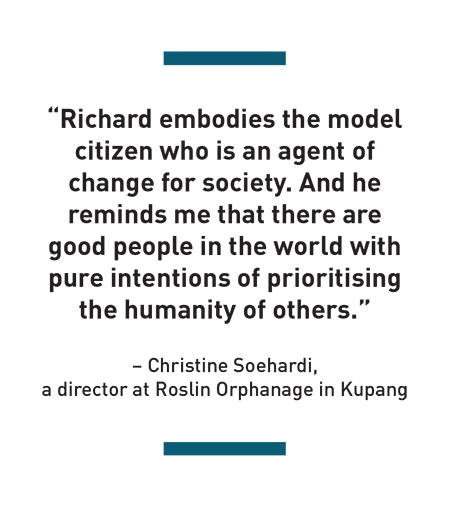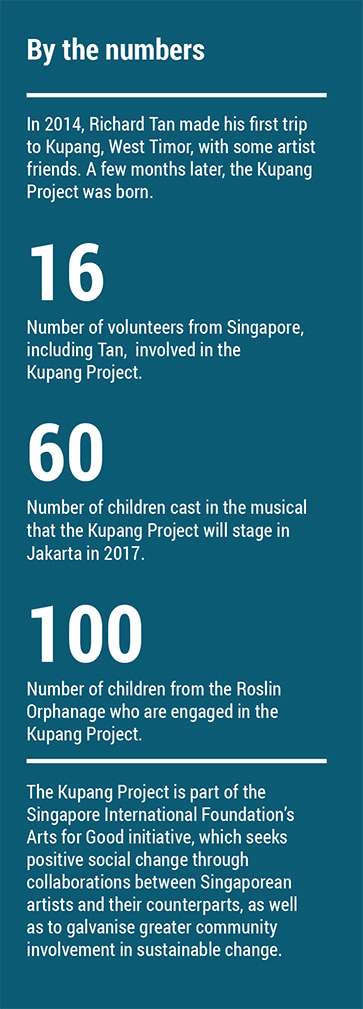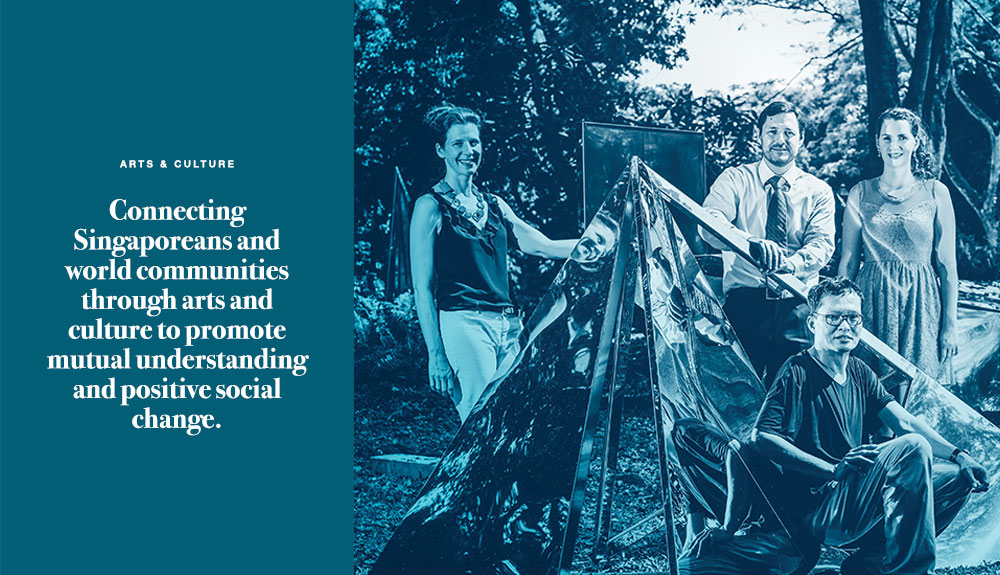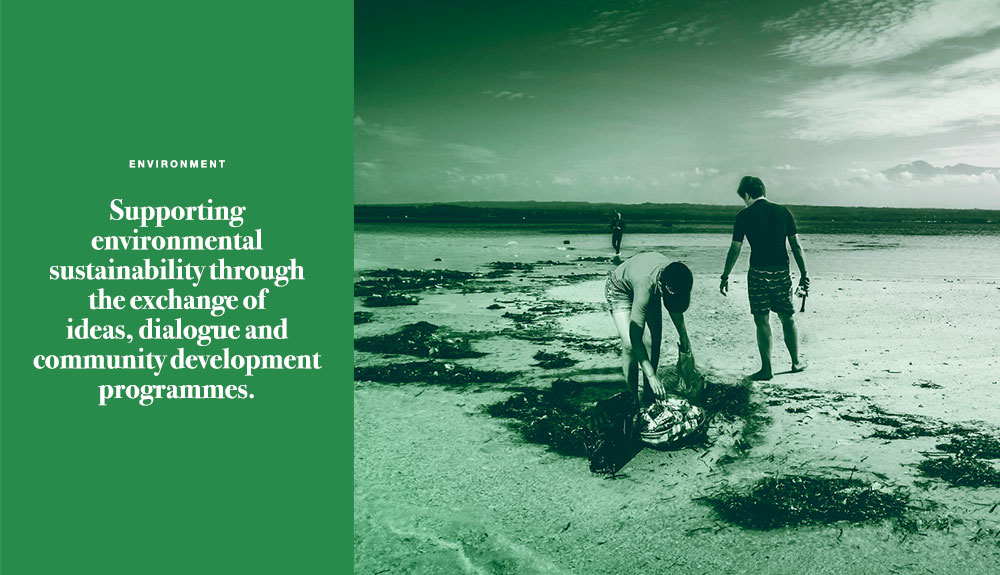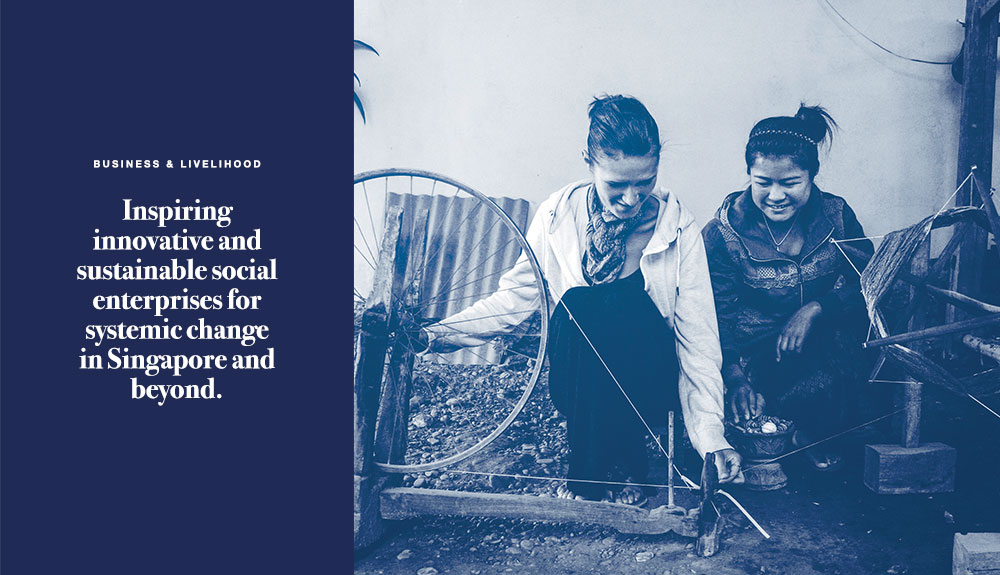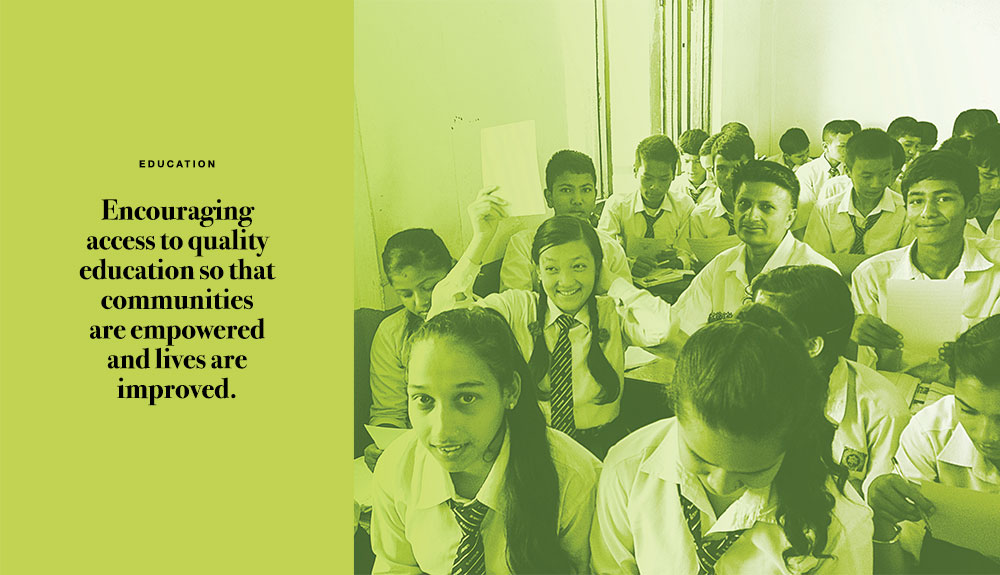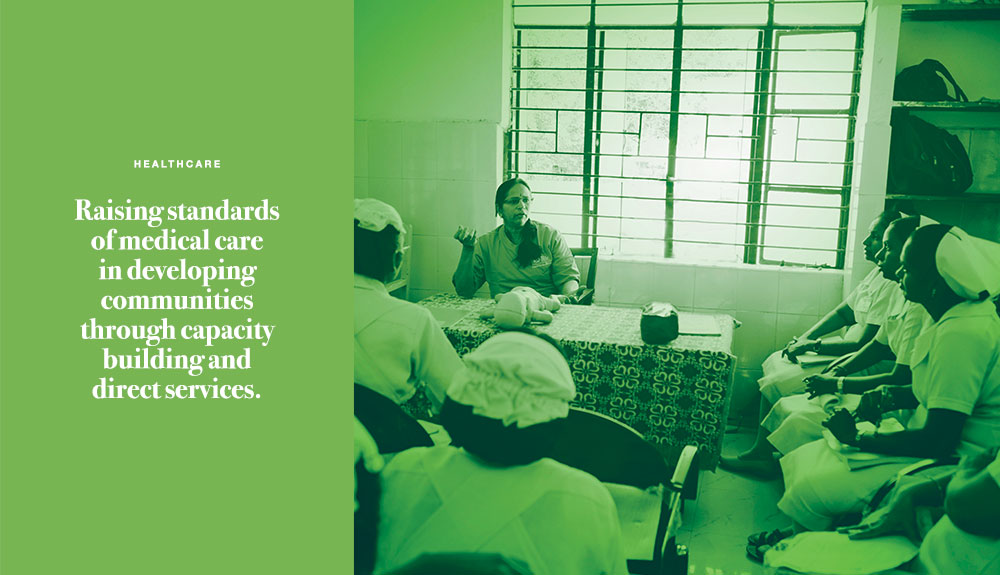
In December 2014, veteran dance and stage artist Richard Tan ventured to Kupang in West Timor, Indonesia, for a visit that was to transform his life and those of the people he met. This came after he was introduced to retired pilot Budi Soehardi and his wife, Peggy. The couple had founded an orphanage in Kupang more than a decade ago and were looking at ways to develop the children artistically.
Tan, 60, artistic director of non-profit theatre company GenerAsia, took a firsthand look at the Roslin Orphanage to explore how he could contribute. He says: “I was amazed to see a bunch of talented kids who could sing and dance, but who were unaware of their own talent.”
So the former choreographer and artistic director with the Singapore Armed Forces Music & Drama Company gathered a team of like-minded artists from Singapore to design a creative education programme for the children.
Thus, the Kupang Project was born, using visual arts, theatre and music to promote creative self-expression among the children. Tan’s collaboration bore fruit as he linked Singaporeans and friends overseas for good.
The project is made possible by the Singapore International Foundation’s Arts for Good initiative, which harnesses arts and culture to connect Singaporeans and overseas communities to effect positive social change.
Initially, Tan worked with Budi Soehardi as a Singaporean-Indonesian “tag team”, inspiring action for good at the orphanage as more people became involved. Subsequently, Budi Soehardi passed on the baton to his three adult children, whom Tan began to train so they too could teach at the orphanage.
Christine Soehardi, 27, who is the oldest among the trio, describes Tan as a man who sees the silver lining in every situation: “He embodies the model citizen who is an agent of change for society. And he reminds me that there are good people in the world with pure intentions of prioritising the humanity of others.”
Here, Tan shares how he has brought communities together through the arts.
1 How did your collaboration with the Roslin Orphanage start?
Looking back, it was really about meeting the right people at the right time, and then the magic happened! I had heard of Budi’s big-hearted work as he was CNN’s 2009 Hero of the Year, but did not know him personally. We met through mutual friends in Singapore. We saw we could contribute to a worthwhile project together. My artist friends and I have creative ideas, while the orphanage has the raw talent. What better way than to marry both? The friendships grew as we became collaborators as well as teachers and volunteers. My role involves spending almost a month in Kupang every other month. I teach the kids a bit of everything, such as stage awareness, theatre improvisation and teambuilding exercises, which they apply to their daily lives.
2 How has the Kupang Project made a difference?
The beauty of it is that it has empowered the children, who in turn feel they too can inspire kids in other orphanages. It has changed their attitude. They have a more positive outlook. We aim to stage a musical in Jakarta in 2017 to raise funds for the Roslin Orphanage. When we started training the kids for the show, they were not even confident enough to speak English. But in a matter of months, they have learnt the language by using lines from the script. Galang Nahak, the nine-year-old star of the show, couldn’t speak English. Now he can. It has boosted his selfesteem and confidence.
3 The proposed musical in Jakarta will be a testament to your collaboration with the local community in Kupang. What do you hope to see?
The Kupang Project started from zero, but through connecting with friends like Budi, Christine and others, we hope to stage a professionally competent musical. I have high expectations. The show has to make the audience in Jakarta realise there is talent within their own islands. But I know the kids will pull it off and do their best.
4 In Kupang, what challenges did you face and overcome?
I am Peranakan, but had not spoken Malay for a long time. Bahasa Indonesia and the local Kupang dialect are different from Malay. But I learnt very fast by watching and listening to what they said. Winning the children’s confidence and trust was also challenging, because they were shy. They now address me as Pak Richard and we treat each other like family. So, in spite of the challenges, I can see the children being transformed. Our lives are now entwined.
5 What experiences in Kupang have been most invaluable?
The kids have very little, but their positivity and hunger for improvement energise me. I’ve realised that if I die without sharing my creativity with the next generation, what’s the point? I help to empower them, even if by just a little. My greatest reward will be to see them take their bows on stage and the audience applauding them for their talent, not because of the misperception that they are orphans to be pitied.
6 What’s next for you?
I’ve connected with a group of like-minded friends and we are considering a way to provide opportunities for a few children from the Roslin Orphanage to visit Singapore every year. Our musical in Jakarta will raise funds to develop a 45ha plot of land – acquired by the orphanage – into an agriculture and farming centre with a mini polytechnic for the kids from the orphanage and nearby villages. When the children are older, they can organise similar programmes and train children from the Roslin Orphanage and other orphanages to be confident and express themselves creatively. I hope the creative education programme will one day be self-sustaining and can be replicated anywhere in the world, connecting different cultures.

